A winner per pool
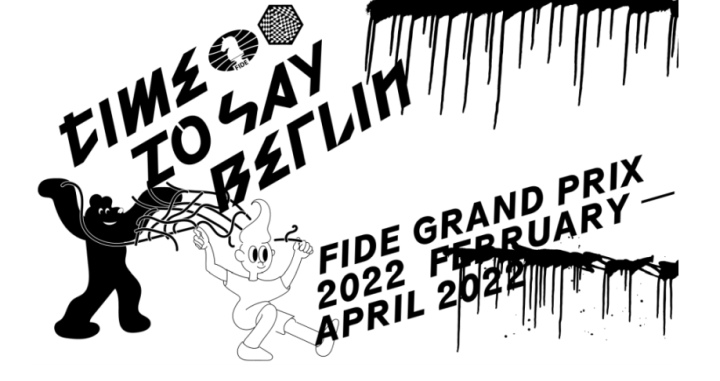 Four players, one in each pool, kicked off the third stage of the Grand Prix series with victories. After the first day’s action, Levon Aronian, Leinier Dominguez, Alexandr Predke and Nikita Vitiugov are the early leaders of pools A to D respectively. Given how exciting the first two stages have been and the fact that two spots in the upcoming Candidates are up for grabs, these results bode well for the tournament’s potential entertainment value.
Four players, one in each pool, kicked off the third stage of the Grand Prix series with victories. After the first day’s action, Levon Aronian, Leinier Dominguez, Alexandr Predke and Nikita Vitiugov are the early leaders of pools A to D respectively. Given how exciting the first two stages have been and the fact that two spots in the upcoming Candidates are up for grabs, these results bode well for the tournament’s potential entertainment value.
Aronian and Dominguez’s victories are particularly relevant in the fight to reach the knockout, as they beat dangerous, often-streaky opponents who have proven their mettle in elite competitions before. While Dominguez defeated the ever-creative Daniil Dubov, Aronian got the better of the first leg’s winner Hikaru Nakamura. Nakamura had defeated Aronian in the final of the series’ inaugural tournament, which also took place in Berlin.
Meanwhile, Maxime Vachier-Lagrave suffered a big blow in pool C, as he was defeated by rating underdog Alexandr Predke. This loss not only hurts the Frenchman’s chances to win his pool, but also any outside chance he had to rapidly gain rating in order to claim the spot taken away from Sergey Karjakin by FIDE’s six-month ban (pending a potential appeal).
In pool D, Nikita Vitiugov beat Amin Tabatabaei, while Yu Yangyi held Anish Giri to a draw in a double-edged game.
Pool A: Aronian breaks Nakamura’s defences
Out of a Queen’s Gambit Accepted, a favourite of Nakamura’s, Black decided to leave his king in the centre and expand on both flanks. As usually happens in such sharp positions, a single mistake turned out to be decisive — in this case, it was Naka who faltered amid the complications.
 He was a child prodigy and he is surrounded by legends. In his best times he was considered to be unbeatable and by many he was reckoned to be the greatest chess talent of all time: Jose Raul Capablanca, born 1888 in Havana.
He was a child prodigy and he is surrounded by legends. In his best times he was considered to be unbeatable and by many he was reckoned to be the greatest chess talent of all time: Jose Raul Capablanca, born 1888 in Havana.
23...Ndxc3, grabbing yet another pawn to get three connected passers on the queenside, is Black’s best alternative here. Of course, it is never easy to make such a cold-blooded move, potentially opening up the position, with a vulnerable king on a board full of pieces.
Nakamura instead opted for the safer-looking 23...Nf4. The problem with the chosen knight jump, however, is that White can respond energetically by 24.Qa2 (24.Ra6 or 24.Bg3 are also strong), as Aronian did not shy away from entering an imbalanced struggle.
Apparently Naka realized he was already in trouble once his opponent transferred his queen to the a-file, as he spent over half an hour on 24...Qb7. The 5-time US champion is known for his tenacity in defence, though, and pushed his opponent to work extra hard in the ensuing technical battle.
After simplifications, Aronian had a rook and two pawns against Black’s two minor pieces.
The man from Yerevan, now representing the United States, needed more than 30 moves to convert this position into a win.
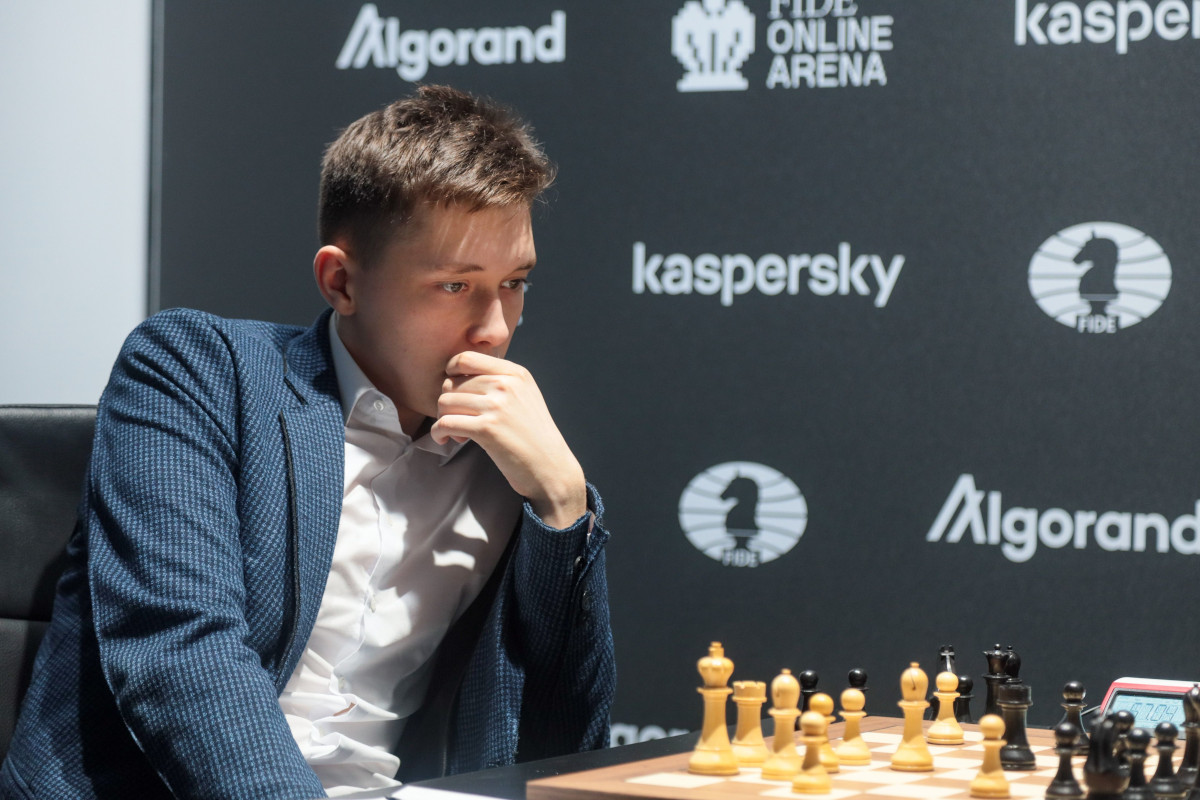
Andrey Esipenko played the Catalan and drew Grigoriy Oparin
Pool B: Time trouble
Two incorrigible chess fighters, Dubov and Dominguez created an imbalanced position in their direct encounter.
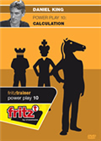 You play 20 moves of elegant positional chess - but throw the game away by miscalculating. To play a good game of chess you must know how to calculate. The ability to calculate is not something that chessplayers are born with. Calculation is a core skill that can be improved through practice. In this 10th Power Play DVD Grandmaster Daniel King will help you to assess how good you are at calculating, and gives you tips as to how you might sharpen your thought processes at the chessboard.
You play 20 moves of elegant positional chess - but throw the game away by miscalculating. To play a good game of chess you must know how to calculate. The ability to calculate is not something that chessplayers are born with. Calculation is a core skill that can be improved through practice. In this 10th Power Play DVD Grandmaster Daniel King will help you to assess how good you are at calculating, and gives you tips as to how you might sharpen your thought processes at the chessboard.
Dominguez had already spent around 15 minutes on three different occasions before reaching this position, and here needed a bit over 13 minutes to decide on 17...Bxf3, generating a long-lasting asymmetry both in terms of structure and material balance.
The Cuban-born grandmaster emerged with a superior position out of the ensuing complications, but he was over an hour behind on the clock. In the run-up to the time control, Dominguez missed some chances, but he also managed to avoid making any kind of irreversible blunder.
It was only after move 40 that Dubov made the game’s decisive mistake.
The e3-rook is under attack, but it is definitely not easy to decide where to place it as the knight is well-positioned and ready to fork White’s pieces. Dubov erred with 43.Rf3, which should not be responded by the direct 43...Nf4 but by the strong zwischenzug 43...Rc2.
Dominguez’s rook move threatens to create mating nets with the help of the knight (from f4) and the pawn on g5. Thus, after 44.Kg3 Nf4, Dubov decided to immediately give up an exchange with 45.Rxf4, leaving Black a pawn up in a pure rook endgame.
The ending was winning for Dominguez, and the US grandmaster did not falter in conversion.
Pool C: Predke pushes his g-pawn
Much like in the second leg, Predke and Vachier-Lagrave were seeded in the same pool and paired up against each other in the first round. While MVL survived from an inferior position in Belgrade, he was unable to avoid a loss this time around.
Out of a Symmetrical English turned sharp, Predke found the most trying continuation in the diagrammed position: 15.g4. As Srinath Narayanan pointed out on Twitter, this manoeuvre had echoes of Judit Polgar’s victory over Ferenc Berkes from 2003.
While Polgar won that game in 24 moves, Predke needed 23 to take down his famed opponent.
Black is lost on all fronts. MVL resigned.
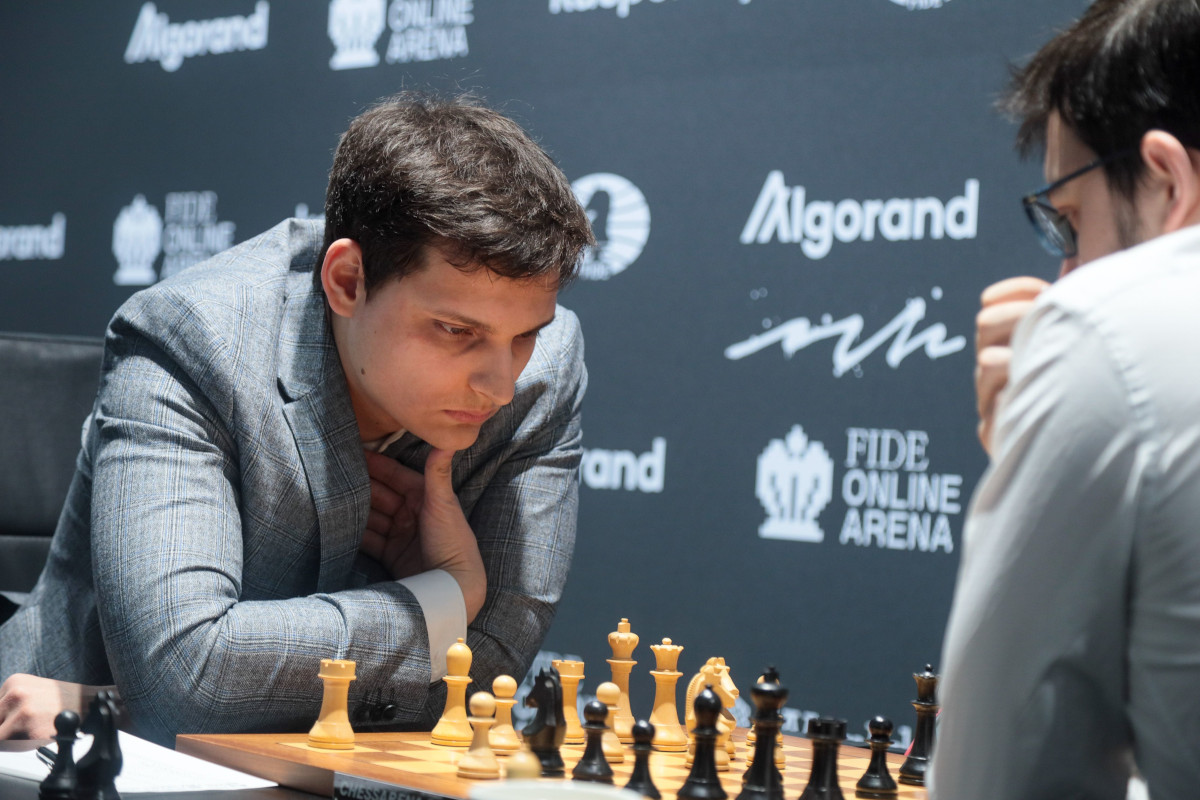
Alexandr Predke
Pool D: Vitiugov beats Tabatabaei
In a pool that includes Giri, Yu and Vitiugov, Iranian GM Amin Tabatabaei is likely to become the target of his 2700+ rated opponents, especially when he plays with the black pieces.
Out of the gate, Vitiugov defeated the rating underdog with the white pieces after a long fight which started as an Open Ruy Lopez.
 Considered a master of prophylaxis, Petrosian sensed dangers long before they actually became acute on the board. In his prime, Petrosian was almost invincible. Let our authors introduce you into the world of Tigran Petrosian.
Considered a master of prophylaxis, Petrosian sensed dangers long before they actually became acute on the board. In his prime, Petrosian was almost invincible. Let our authors introduce you into the world of Tigran Petrosian.
The man from Saint Petersburg (when he was born, the city was still called Leningrad) gained a pawn in the early middlegame. The queens left the board on move 22, and with 23...d3 Tabatabaei put all his hopes in the d-file passer as compensation for the missing material.
It was a 64-move struggle, but Vitiugov prevailed in the end, thus putting pressure on Giri and Yu — who drew their direct encounter — right from the get go.
Links
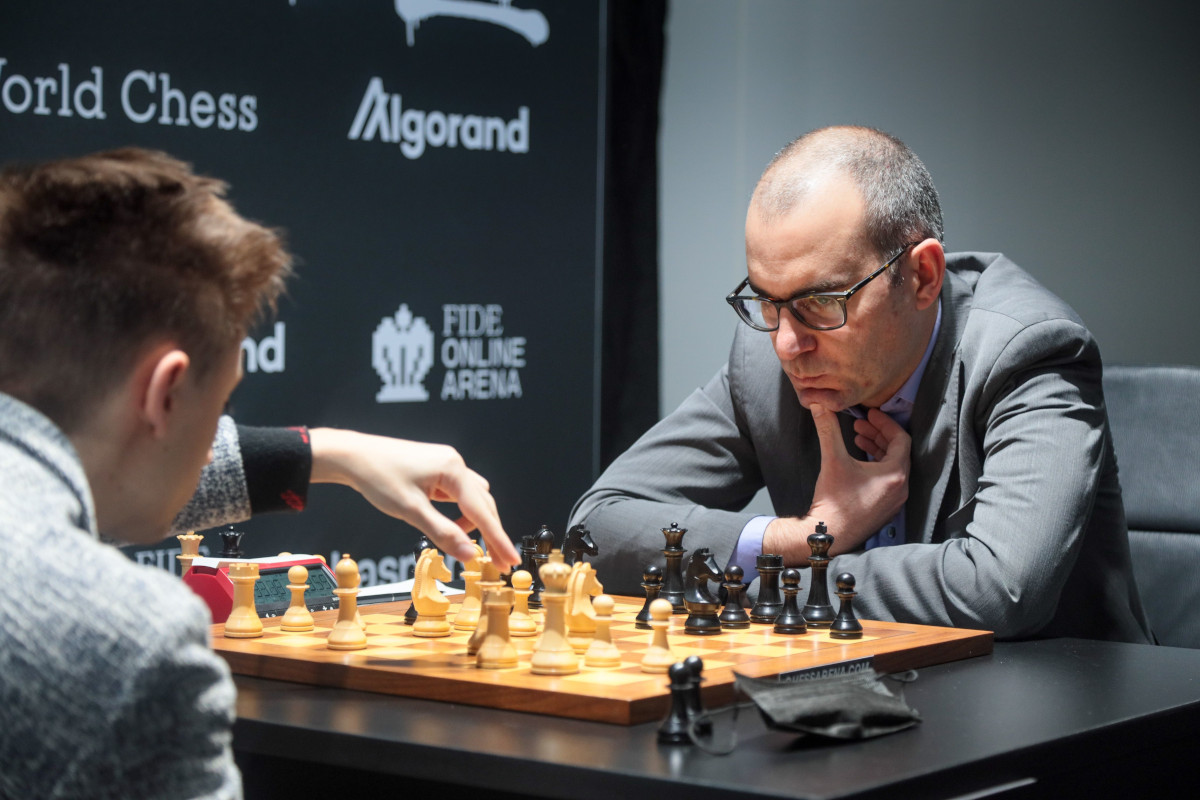

















 Four players, one in each pool, kicked off the third stage of the Grand Prix series with victories. After the first day’s action, Levon Aronian, Leinier Dominguez, Alexandr Predke and Nikita Vitiugov are the early leaders of pools A to D respectively. Given how exciting the first two stages have been and the fact that two spots in the upcoming Candidates are up for grabs, these results bode well for the tournament’s potential entertainment value.
Four players, one in each pool, kicked off the third stage of the Grand Prix series with victories. After the first day’s action, Levon Aronian, Leinier Dominguez, Alexandr Predke and Nikita Vitiugov are the early leaders of pools A to D respectively. Given how exciting the first two stages have been and the fact that two spots in the upcoming Candidates are up for grabs, these results bode well for the tournament’s potential entertainment value.






